Many parents wonder when to start reading to their little ones, and the answer is: right from the start! In fact, experts recommend introducing books during those early months. Reading to your baby not only introduces them to new words but also supports their language development and strengthens the bond between you.
Child development specialist Crystal Miles says, “A baby’s brain grows fast in the first three years, making a million new connections every second. Adding a few short books into your daily routine is amazing for your baby’s growth—it helps with language, imagination, intelligence, and builds a strong bond between you and your little one.”
And the numbers back it up! A study published in PEDIATRICS found that babies who were read to regularly starting at six months had a remarkable 40% increase in their vocabulary by the time they were 18 months old. So, snuggling up with a book is not just a cosy activity; it’s a powerful way to support your baby’s development!
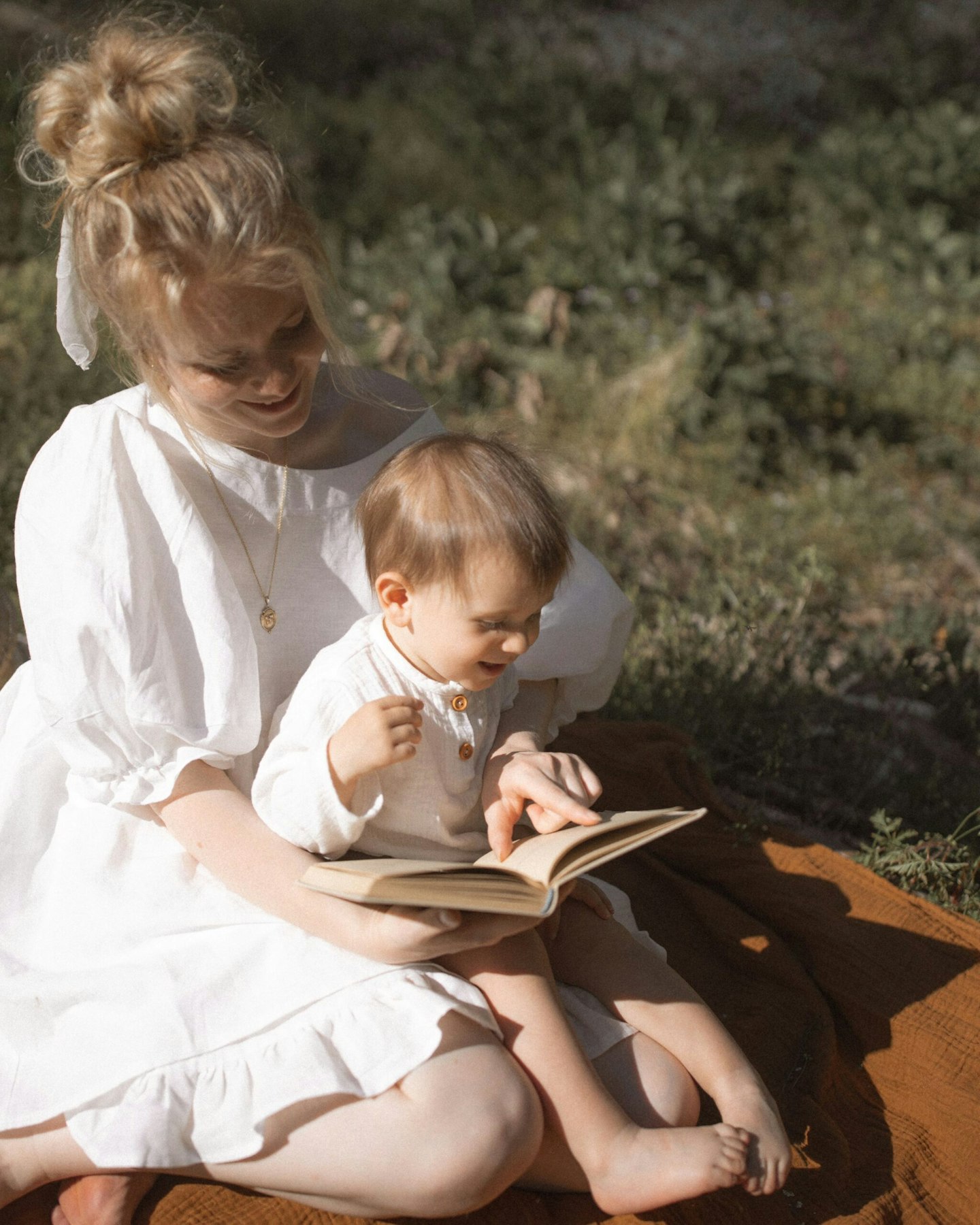
When to start reading to baby
Your baby has been listening to your voice in the womb long before they entered the world, which is why they love listening to you talk, sing and read aloud too! That's why many parents like to read books to their baby's from the day they're born.
Of course, they won't understand the words that you're saying, but they'll love hearing the different sounds and rhythms, especially if it's a rhyming book. Reading to your baby will help boost their hearing and listening skills as they grow up.
As your baby gets older and you establish a regular bedtime with them, having some quiet reading time before bed helps them get used to that routine and boost your bonding time together.
Why is reading to my baby good for them?
Reading isn’t just about teaching your baby words—it’s also about connection. Hearing your voice helps them feel safe, and books introduce them to new sounds, colours, and ideas. Even though babies can’t understand the words yet, they love the rhythm and tone of your voice.
Crystal explains, “Reading together is a special time for cuddles and closeness.” Plus, kids who are read to regularly from a young age tend to have bigger vocabularies by the time they’re toddlers. A study found that children whose parents read them five books a day hear about 1.4 million more words by the time they start kindergarten compared to children who aren't read to at all.
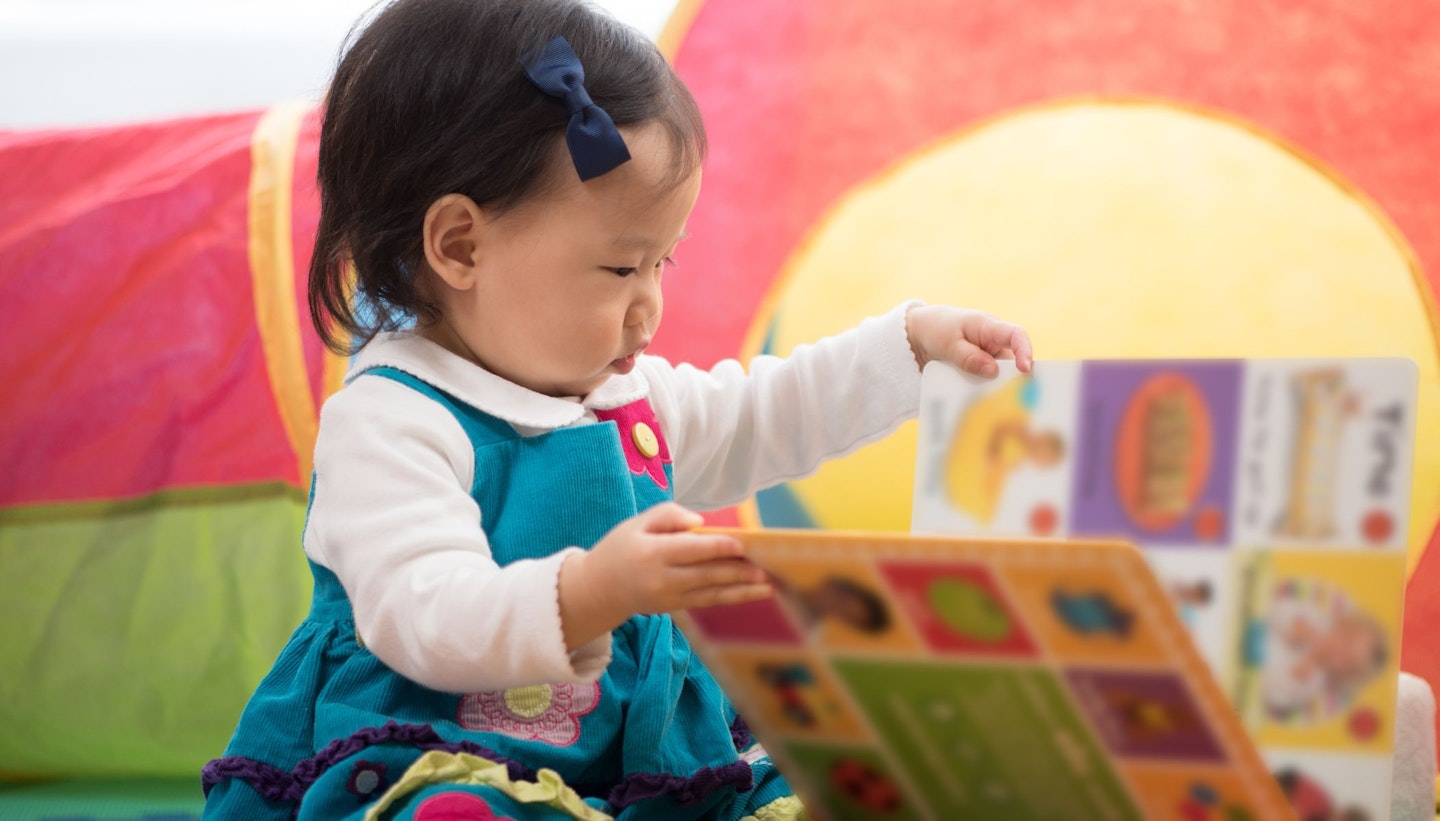
Easy tips to start reading with your baby
-
Read anytime: Fit reading into your busy day—whether it’s at bedtime, bath time, or even when you’re out and about. Crystal suggests, “You can read at bedtime, bath time, or even when you’re out and about.”
-
Keep a book handy: Always have a book in your bag for quick reading moments throughout the day. It’s not about reading for a long time; it’s about making it a fun and regular part of your day.
-
Create a cosy reading nook: Set up a special little reading area in your home or have a designated time each day, like before bed, to sit together and share a book.
-
Engage with pictures: As you read, point to pictures and name things to help your baby learn. “Babies learn by hearing you,” says Crystal, which emphasises the importance of your voice in this process.
-
Encourage babbling: Your little one might not be able to talk much yet, but soon you'll notice them starting to babble, using simple words like “dog” or “cup,” and even pointing out things in the book.
-
Make reading a daily habit: Crystal encourages starting right away, even if it’s just for a few minutes a day. “Reading together helps babies understand the world around them and introduces them to new sounds, words, and pictures. Plus, it’s a great way to bond with your baby.”
-
Stay flexible: As your baby grows, keep things adaptable. Find books that spark their interest and make reading something enjoyable, not a chore. When reading is fun, your baby will carry that love of books with them as they get older.
-
Repetition is good: Babies often like hearing the same book over and over. It can feel boring for you, but they will have their favourites! Use different voices for characters and make funny sounds to keep it exciting.
-
No pressure: "Don’t worry if you don’t finish the book—just enjoy the time together,” Crystal advises. If your baby seems sleepy or isn’t in the mood, it’s okay to read just a few pages. Reading should be fun, so don’t feel bad if they don’t seem to enjoy it. Just try again another day.
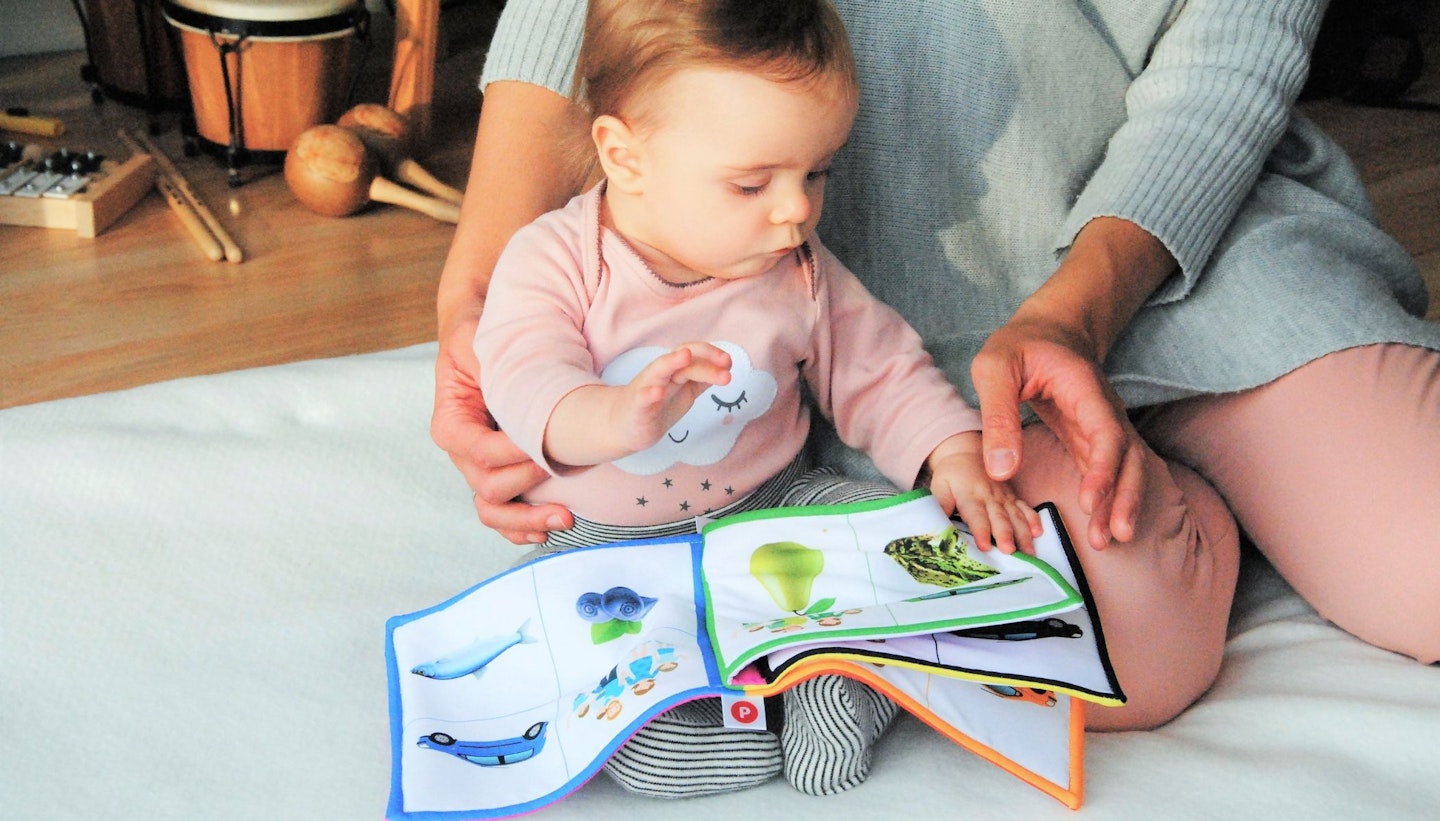
Types of books for children up to 5 years old
When it comes to choosing books for your little one, different age groups have specific needs and preferences. Here’s a breakdown of recommended book types for various developmental stages:
0-12 Months
-
Board books: These sturdy books are perfect for little hands and mouths. Look for titles with bright colours and simple images.
-
Touch-and-feel books: Books with different textures engage babies’ senses and curiosity.
-
Rhyming books: Babies love rhythm and sounds. Look for books with repetitive phrases and rhymes, which help in language development.
Recommended books:
Baby Touch: My First Book: a black-and-white cloth book, £10.25
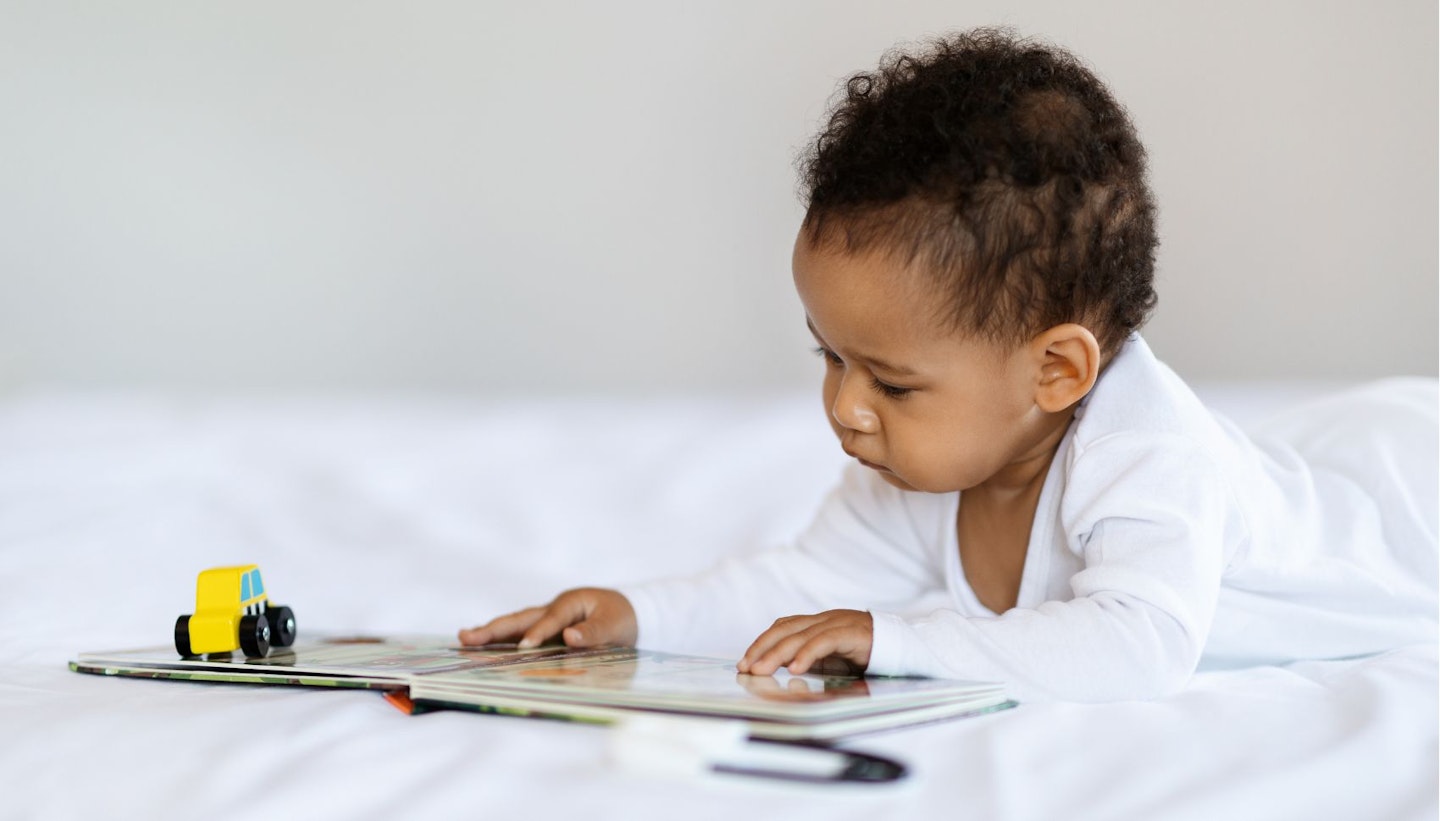
12-18 Months
-
Interactive books: Books that invite participation, such as lift-the-flap or peek-a-boo books, keep toddlers engaged.
-
Simple picture books: Choose books that depict everyday objects, animals, or family members. Familiarity helps with vocabulary.
Recommended books:
“That’s Not My…” series 4 books colletion by Fiona Watt& Rachel Wells, £21.49
18-24 Months
-
Storybooks with a few words: At this age, children enjoy stories with simple narratives and illustrations that spark their imagination.
-
Books about feelings and social situations: These help toddlers understand emotions and develop empathy.
Recommended books:
Usborne Jungle Sounds, £9.75
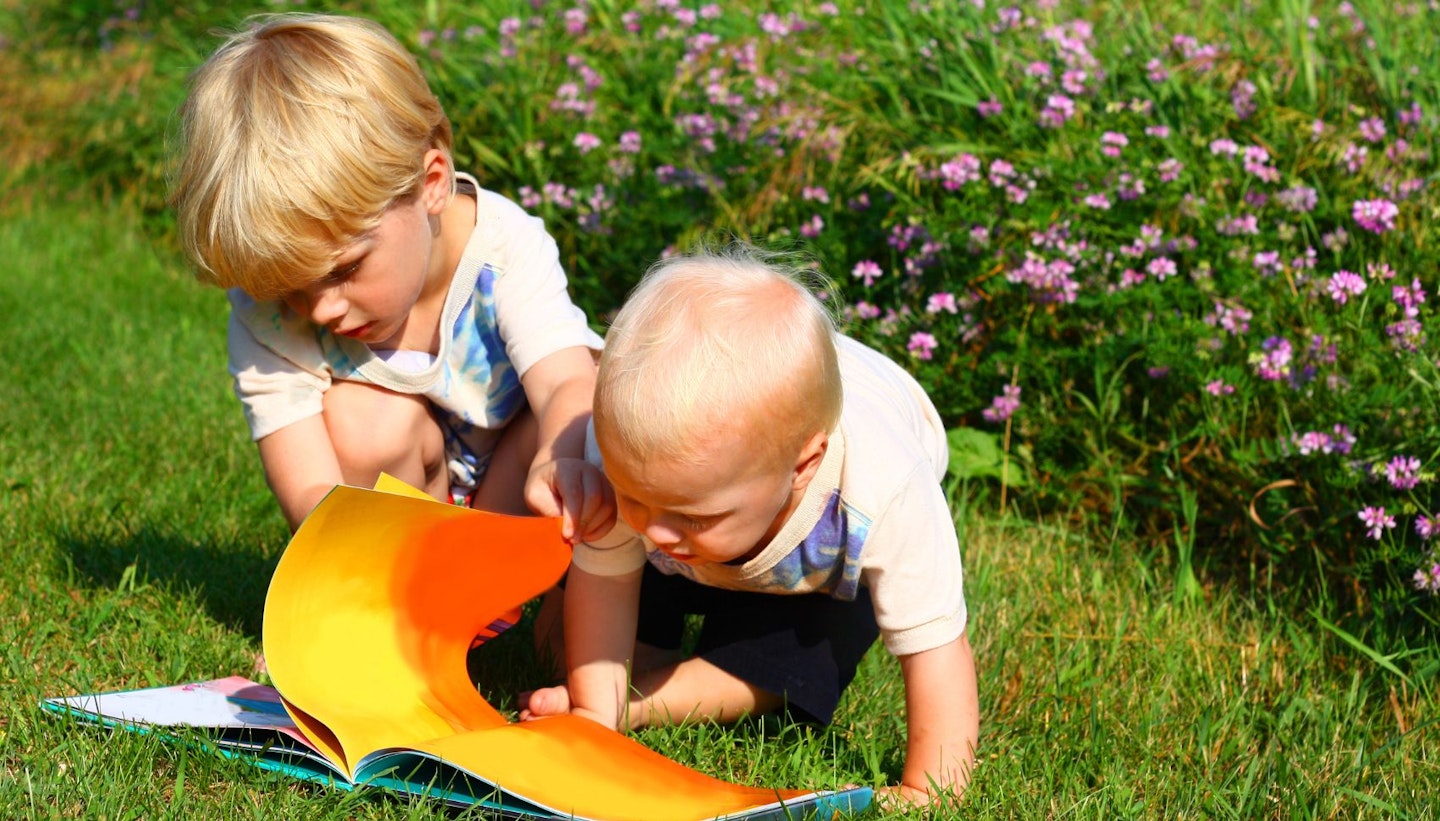
2-3 Years
-
More complex picture books: Introduce stories that include a plot, characters, and a bit more text. Books with relatable themes, like going to the park or visiting the doctor, are great choices.
-
Books with repetition: Kids love to hear the same story multiple times, so don’t hesitate to read their favourites over and over!
Recommended books
How You Got Your Name, £29.99
“Brown Bear, Brown Bear, What Do You See?” by Bill Martin Jr., £7.49
3-5 Years
-
Early readers: Books with larger text and simple sentences can help bridge the gap to independent reading.
-
Storybooks with pictures: Look for more intricate illustrations that encourage storytelling and imagination.
-
Books about diversity and different cultures: These can help expand their worldviews and teach inclusivity.
Recommended books:
Monty the Manatee: A book about kindness and anti-bullying, £7.24
Not Like The Others: A Hidden Picture Book About Diversity, £6.99
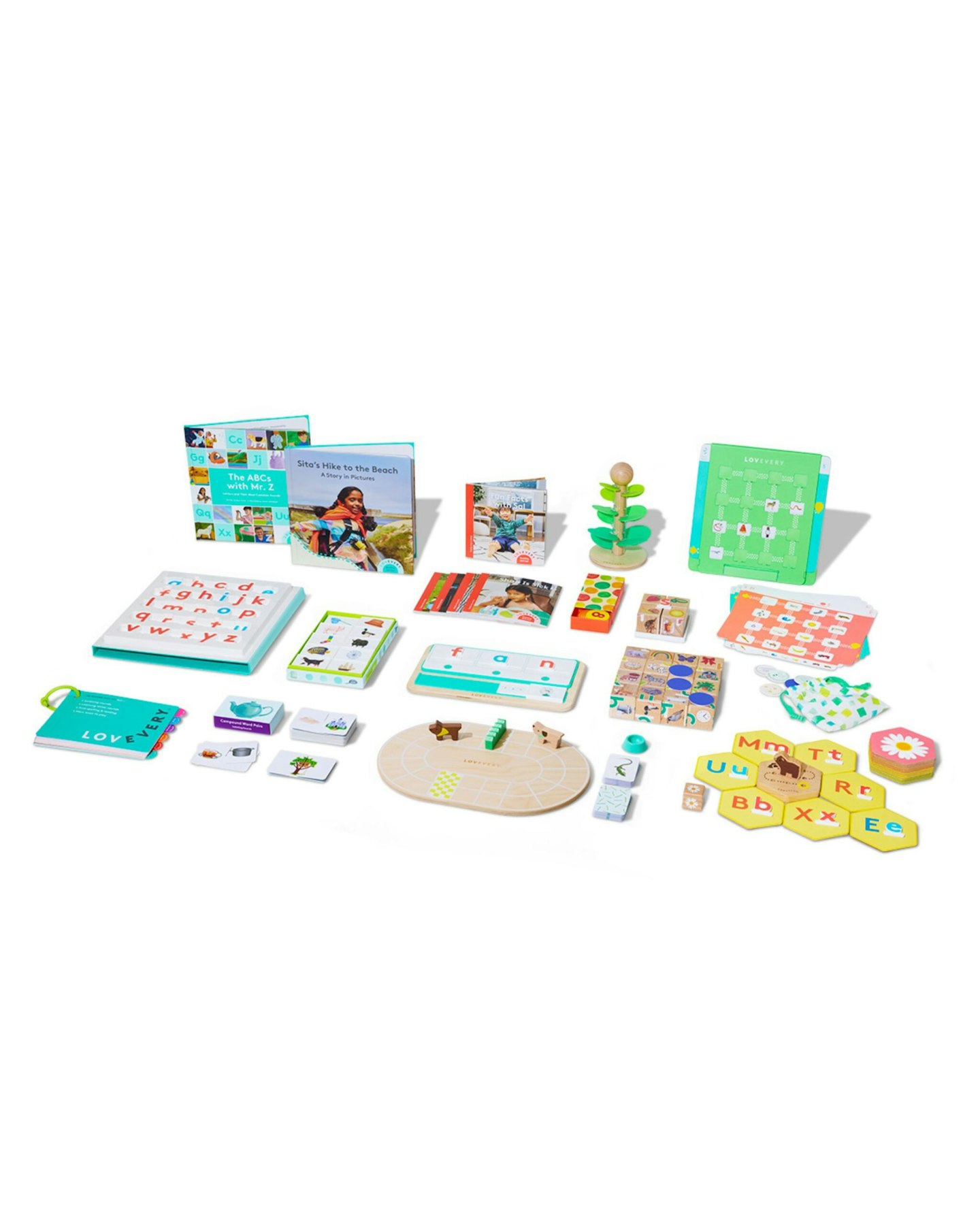 Lovevery
Loveverylovevery.co.uk
Wondering when to start helping your little one learn to read? The truth is, there’s no rush — just lots of little steps. The Reading Skill Set is a beautifully hands-on way to support those early moments, using play and connection to build confidence with sounds, letters, and eventually, books.
Designed for ages 3+, this isn’t a program full of pressure — just meaningful, screen-free fun you can enjoy together, with books, games and activities that grow with your child at their pace.
Part 1: Sounds to Reading (Typically for ages 3–5)
Start with the very basics: learning the sounds that letters make, spotting rhymes, breaking up words into little chunks — all through fun, sensory games and stories. It’s a lovely introduction to phonics, especially if you’re not sure where to begin.
What’s inside:
• The ABCs with Mr. Z – a charming letter-sound book that makes phonics feel natural
• Sita’s Hike to the Beach – a storybook that builds early storytelling skills
• Turn-Taking Book Series – read together, with fun bits for your child to join in
• Rhyming Leaves Game – spot rhymes and build sound awareness
• Syllable Race Game – race your dog around the track by tapping out word parts
• Animal Letter Sound Cards – colourful flashcards for each letter and sound
• Follow the Sound Maze – follow first or last letter sounds to find your way through
• Compound Word Pairs Game – discover how words can come together
• Wooden Letter Sound Blocks – match images to reveal the right letter
• Skill Tokens – a fun way to revisit what they’ve learned
• Letter Case Beehive Game – pair upper and lower case letters while racing to beat the bear
• Movable Alphabet – build words using beautiful red and blue letters
• Spell & Check Slider – spell 3–5 letter words and slide to check your answer
• The Play Guide – full of ideas, tips, and explanations for parents (no teaching experience needed!)
Every child learns differently. While this set is typically for ages 3–5, it’s designed to move at your child’s pace — whether they’re just starting out or need a little extra confidence.
And when they’re ready, you can keep the journey going with:
Part 2: Words to Books (typically ages 4–6)
Part 3: Advanced Rules to Chapter Books (typically ages 5–7)
Pros
- Screen-free and pressure-free
- Clear parent guide with all the support you need
- Montessori-inspired, hands-on learning
Cons
- It does take up some shelf space (but it’s beautiful!)
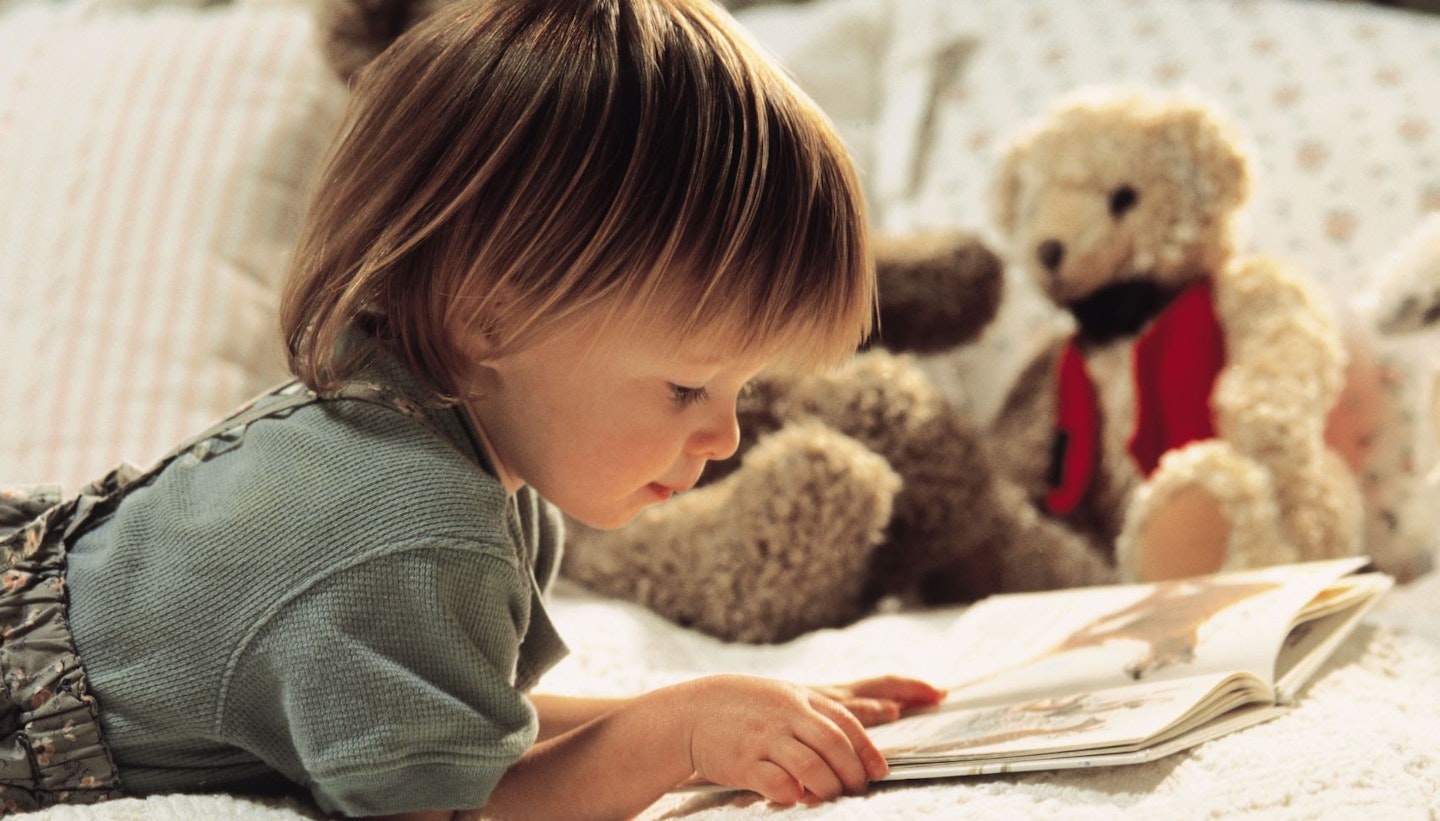
Benefits of choosing the right books
Selecting age-appropriate books not only supports language development and cognitive skills but also nurtures a love for reading. Engaging with books that match your child's developmental stage helps them build vocabulary, comprehension, and storytelling abilities. It lays a strong foundation for future learning while creating special bonding moments between parent and child.
Stay attuned to your child’s interests and preferences as you choose books. Encouraging a positive reading experience will instil a lifelong love of reading in your child!
About the expert
Crystal Miles (CIMI, FdSC, DipION, DipHB) is an international trainer in baby massage, an infant bonding and communication expert, doula, and the founder of Connected Babies. Crystal passionately believes that a generation of responsive, nurturing parenting could change the world and that the nurturing touch provides an enjoyable and accessible way for every human being to experience the value and the far-reaching benefits of positive early interaction.
About the author
Anne Lora Scagliusi is a Senior Digital Writer at Mother & Baby. She is a Scotland-based journalist with over a decade of international writing experience, specialising in women’s health, maternal mental health, and wellness. Her work has been featured in Vanity Fair, Marie Claire, and Glamour and has appeared on several Vogue global editions. She is mum to a one-year-old bambino and lives between Italy and the UK. You can follow her on Instagram.
